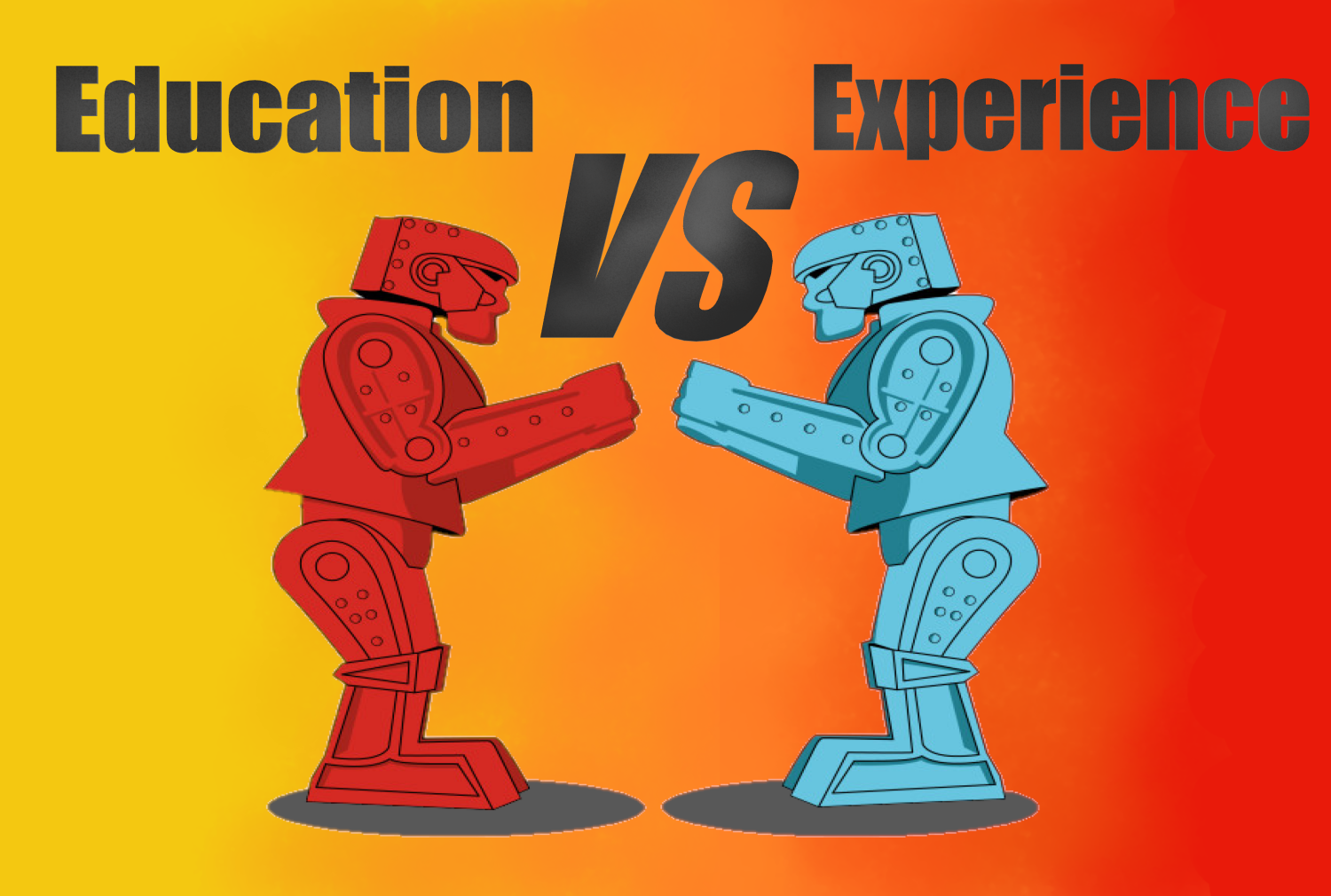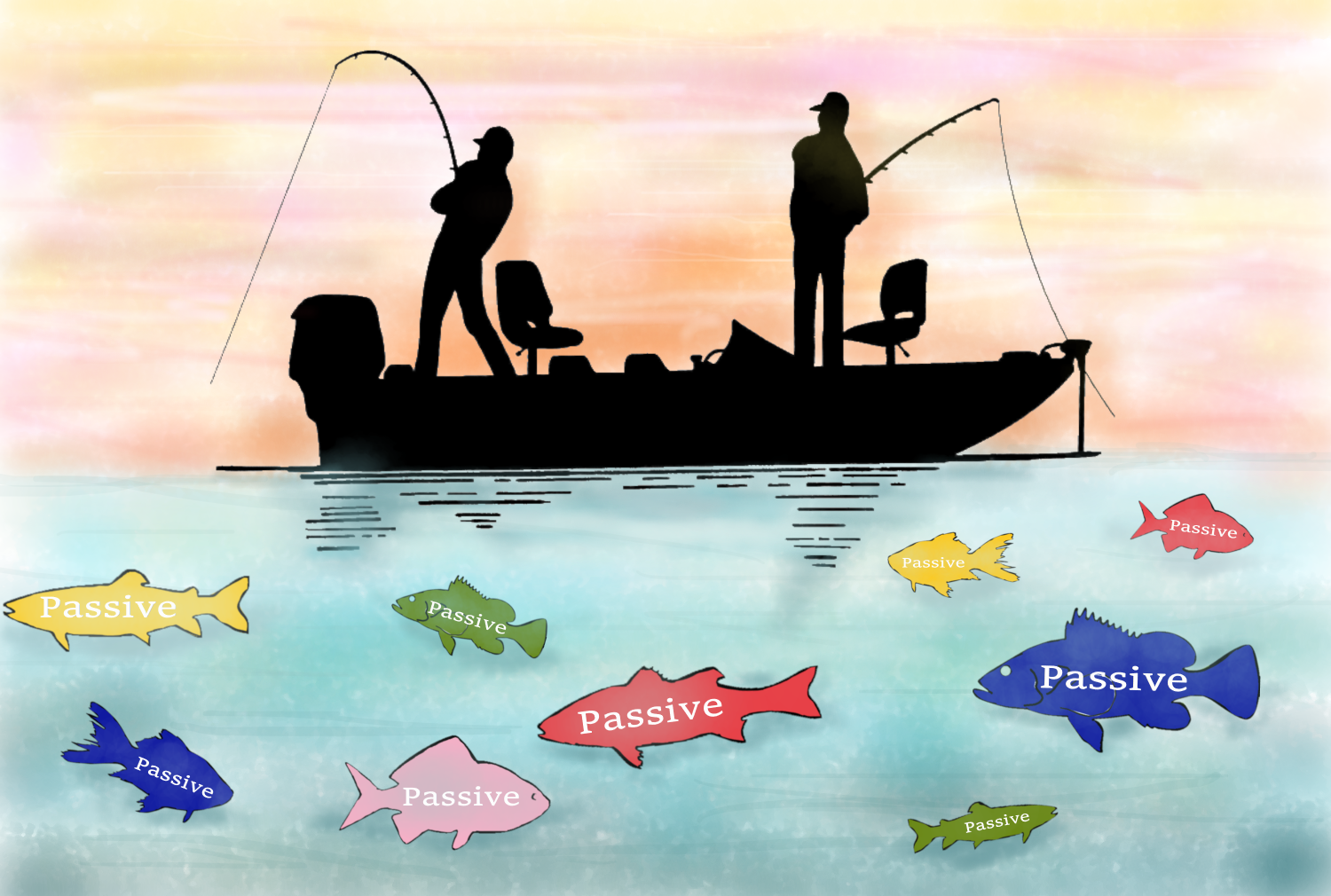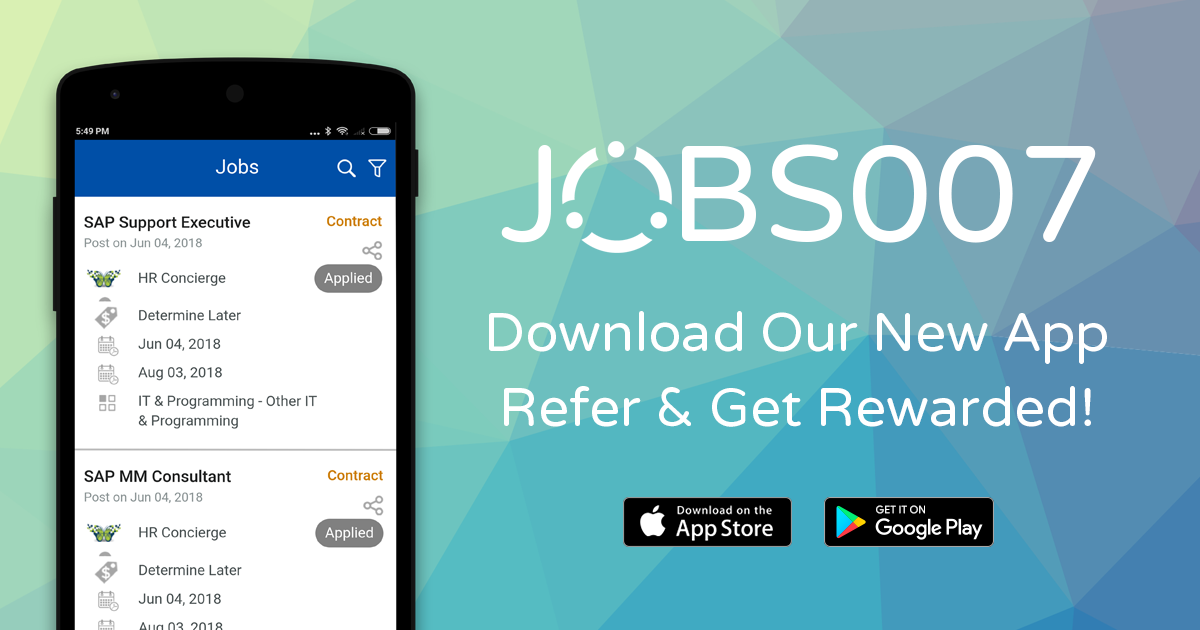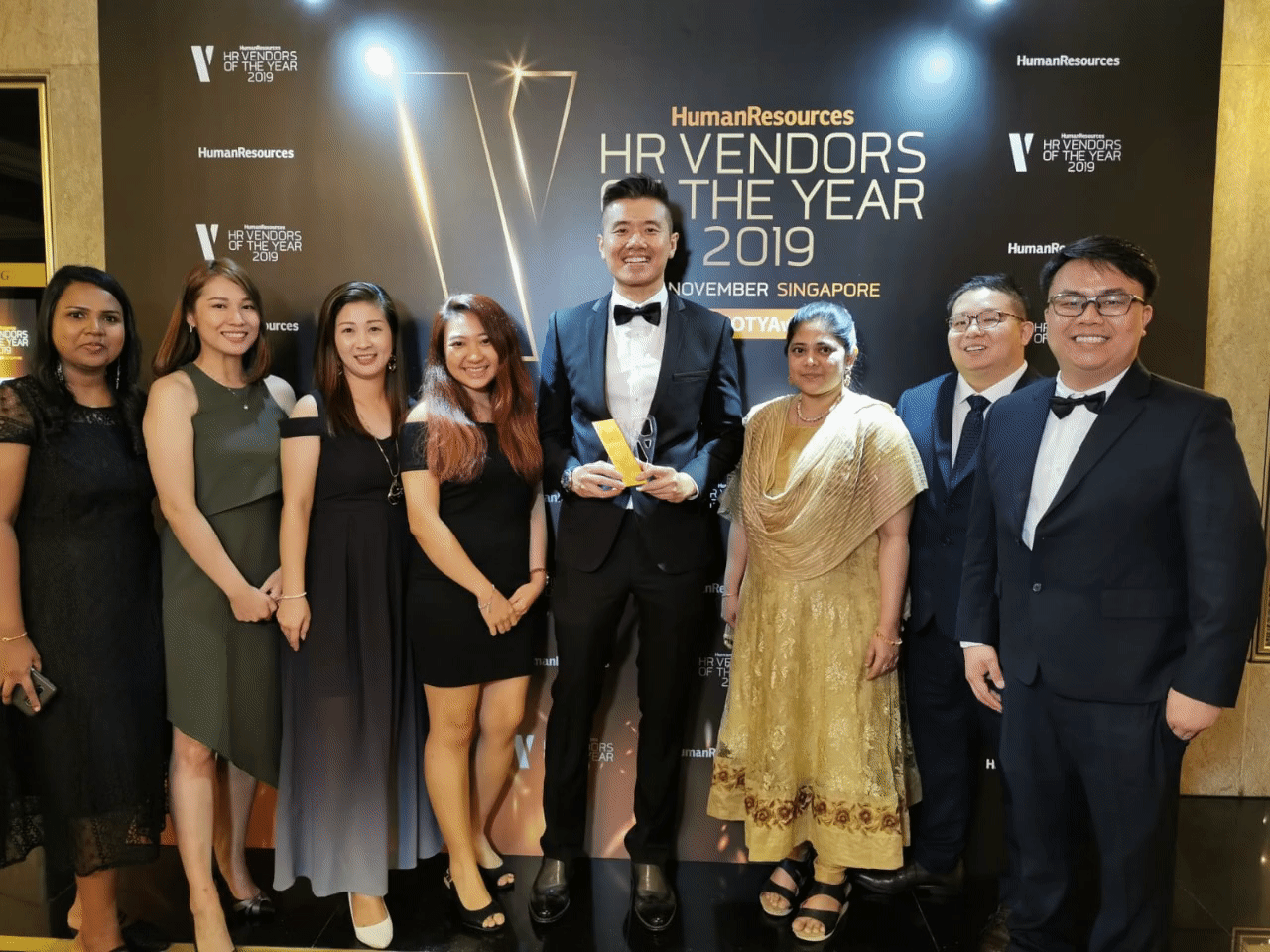“Employers nowadays look at work experience more than academics when hiring.”
“You need to have a degree at least to get a job.”
Are these the common things you hear? What is your opinion about it?
Experience vs Education has been and is still a common discussion topic among students. And even among educators and employers.
An eternal dilemma which is constantly in battle.
EXPERIENCE
Personal opinion
To be honest, I lean more towards experience as education doesn’t give experience but experience always educates.

Experience builds your character and helps you gain life skills and practical skills which can be used in most real-world context.
Only through hands-on experience will you be able to test your capabilities and truly learn and realise your weaknesses and strengths.
With that said, education lays your groundwork for the future; experience allows you to use that education to the fullest extent.
Based on my experience as an intern, it is a 180-degree change from what I expected. The knowledge and skills gained from school, I would say it is useful but only to a certain extent.
It is because only a small part of it was applicable, scraping the surface of real-world problems.
Thankfully as I come from a tertiary school, I was given opportunities to build on my soft skills and experience more real-life situations.
For example working in teams, being a main committee of a club, organising events, and so on.
Moving on, everyone will be educated the same thing, is just how well he/ she performs. What makes you stand out from the crowd is the experience you have.
Everyone’s life experience is different.
For example, will you have the same experience as your colleague in handling a customer?
Education may help you expand your peer network but unlike work experience, it does not expand your network to various kind of people who have actually experienced the real world.
Thus, work experience allows you to learn from others’ experiences and mistakes.
A knowledge which will help you in your career planning and life decisions.
General opinion
According to Independent, 58% of leading employers value work experience among graduates more than grades or the name of their university.
There’s even an article by LinkedIn on Reasons Why Experience Matters More than Education. And research state that unbundling of education has started taking place.

Ryan Craig mentioned that students may one day find they don’t need a bachelor’s degree to become employable. Which is true in this current society.
Currently, even well-recognised companies such as Ernst & Young and Google are looking to remove the barrier of needing a degree in the hiring process and are instead looking to the era of a competency marketplace.
With this inevitable shift happening, some institutions think this may be the ‘death’ of higher education if it remains in its current state.
In DMI Daily Digest, it mentioned that a new business model between business and education is becoming more apparent than ever.
And by 2020, it will be a common model among colleges and universities.
With some companies such as Google, IBM and Amazon being a critical part of this public-private relationship.
“It’s a mutually beneficial partnership as some companies are moving toward requiring workers to have specific skills rather than college degrees.”, states DMI Daily Digest.
Adding on to that, some companies opted to put every candidate through a suite of custom-developed “strengths assessments and numerical tests.
Instead of using academic qualifications as an entry criterion.
A recent article also reveals that “Employers today expect recent college graduates to demonstrate the equivalent of two years’ worth of work experience in their domain before they’ll consider hiring them”.
By showing you are experienced, it gives the impression that you are independent, willing to try, and that less time is required to train you to be ready.
“The only source of knowledge is
experience.”
EDUCATION
My Opinion
Through education, you will gain theoretical skills which as mentioned earlier, will be your foundation for every career path.
To me, having a degree will be your key to more opportunities and better vocations.
It is one of the only investments you can make that guarantees a return on your investments.
I would say that it’s like a safety net. It gives you assurance that it will be easier to get a job and climb the ladder.
However, it depends on the situation and the career path that you are planning to take. As only certain career requires higher education, which includes lawyer, doctor, professors, etc.
Despite that, I believe it is important to widen your knowledge and just upskill yourself as much as you can. But obviously, they should be relevant to your career path and the industry trend.
For example, IT skills. Almost every industry now requires IT skills to excel, accompanying it will be soft skills.
With more relevant skills you have, the more attractive your CV will look. Thus, increasing the chance of meeting most employers’ requirements.
Showing that you are academically inclined will show that you are very quick to learn, good in understanding and absorb information well.
With that said, I believe that both are important in their own way and they complement each other.
General Opinion
Based on a question on Quora, “Is experience more important than education”, 60% answered “Yes”, whereas the rest answered both are interdependent.
The following are some of their answers:
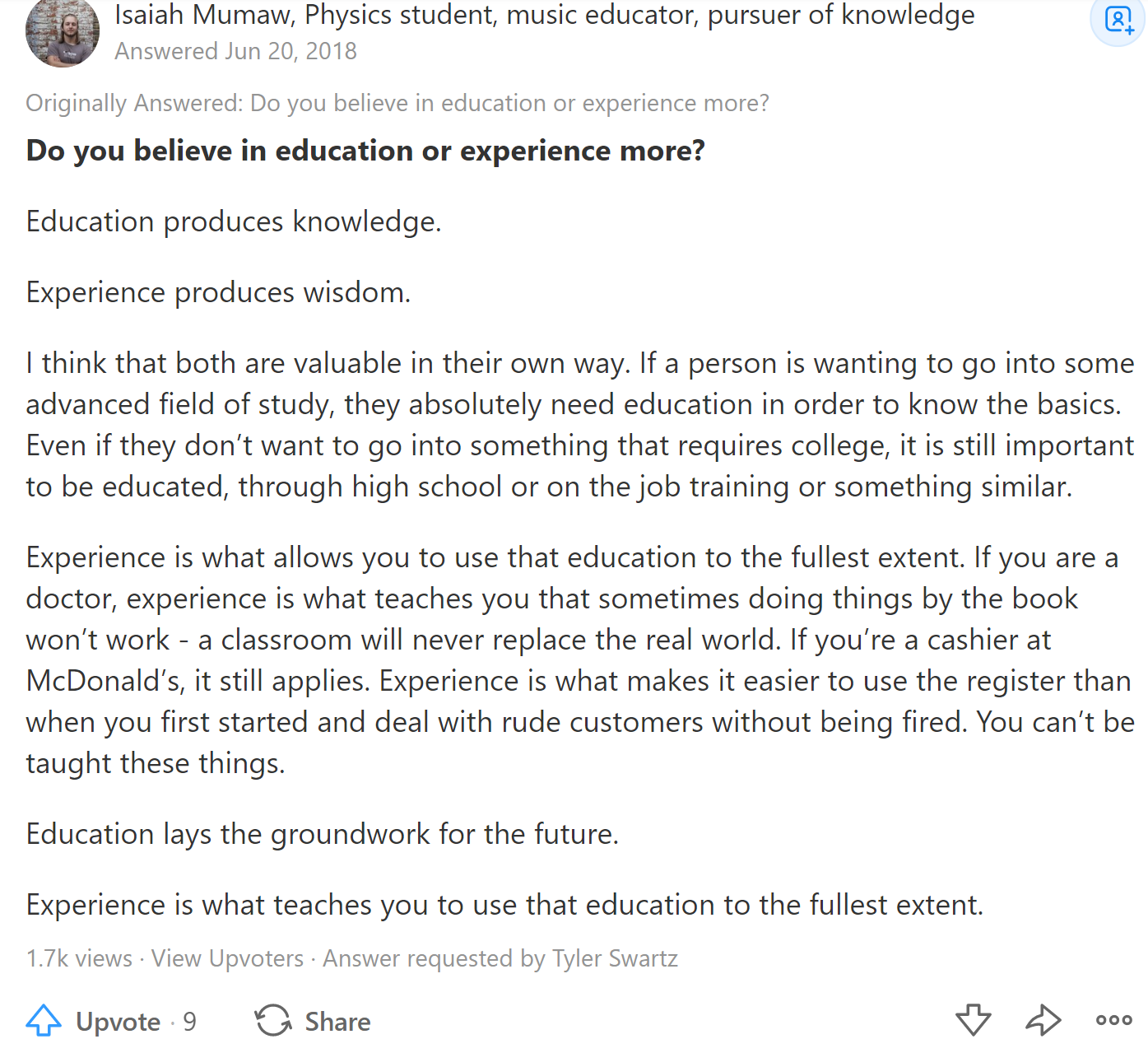

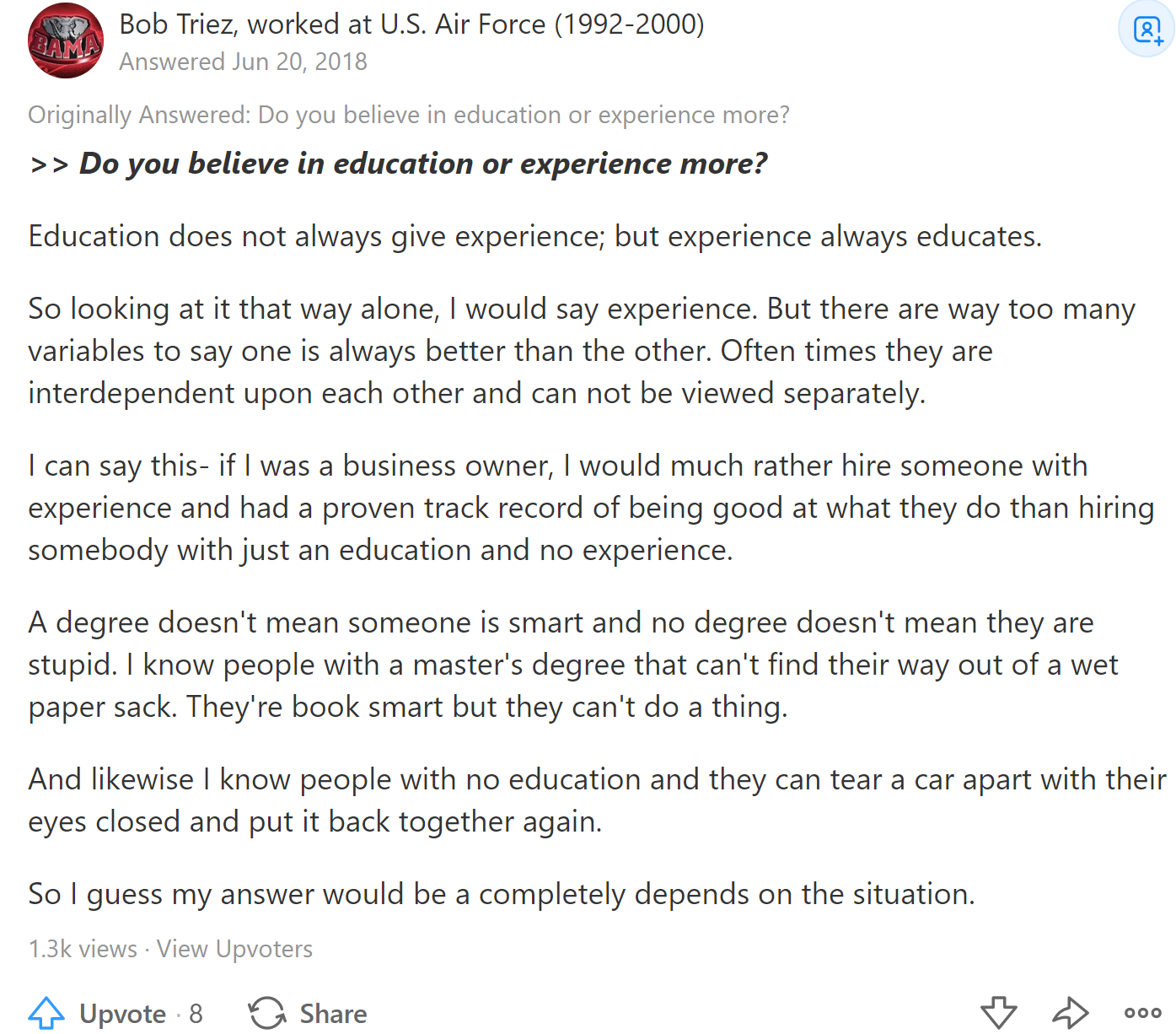

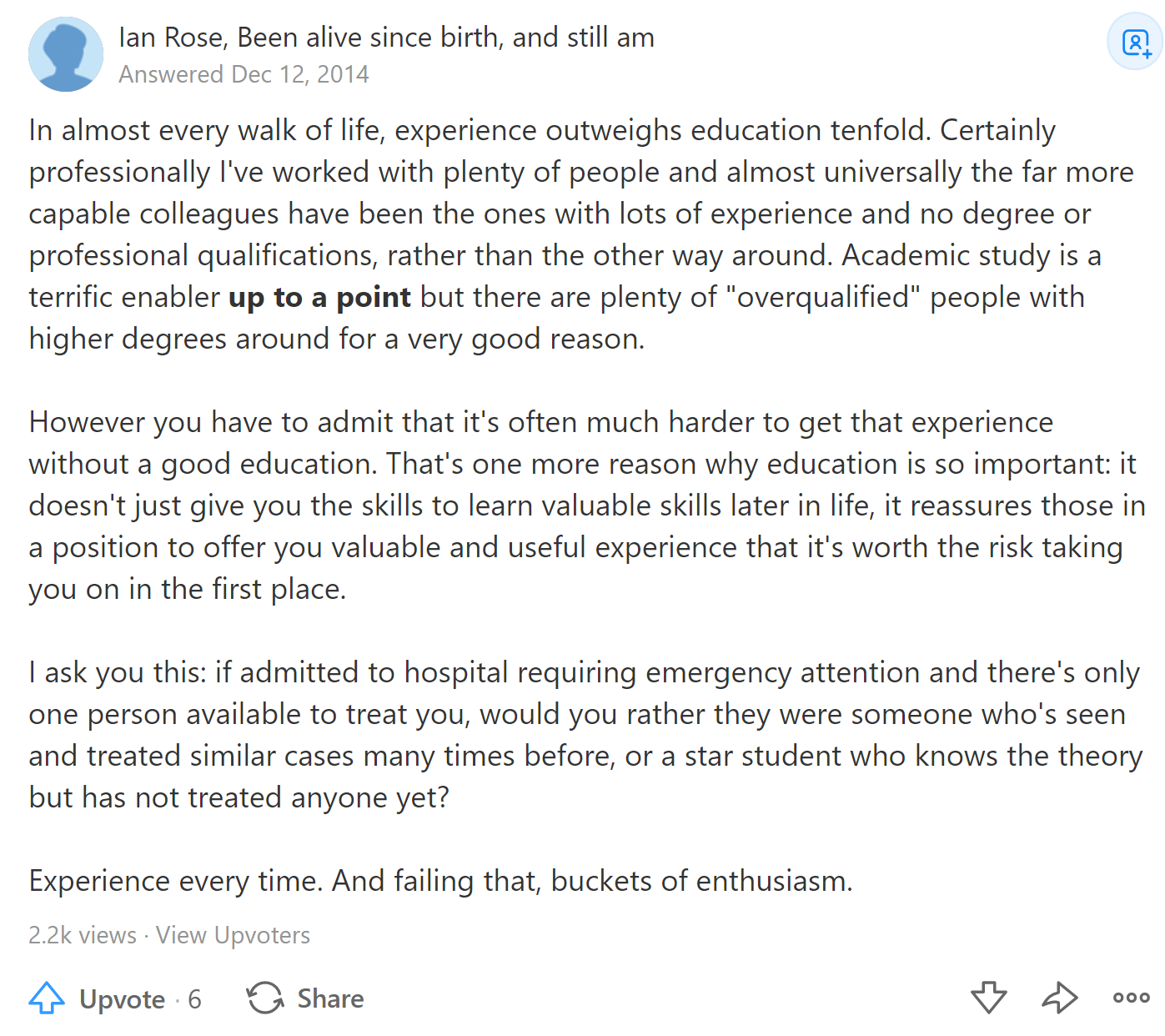

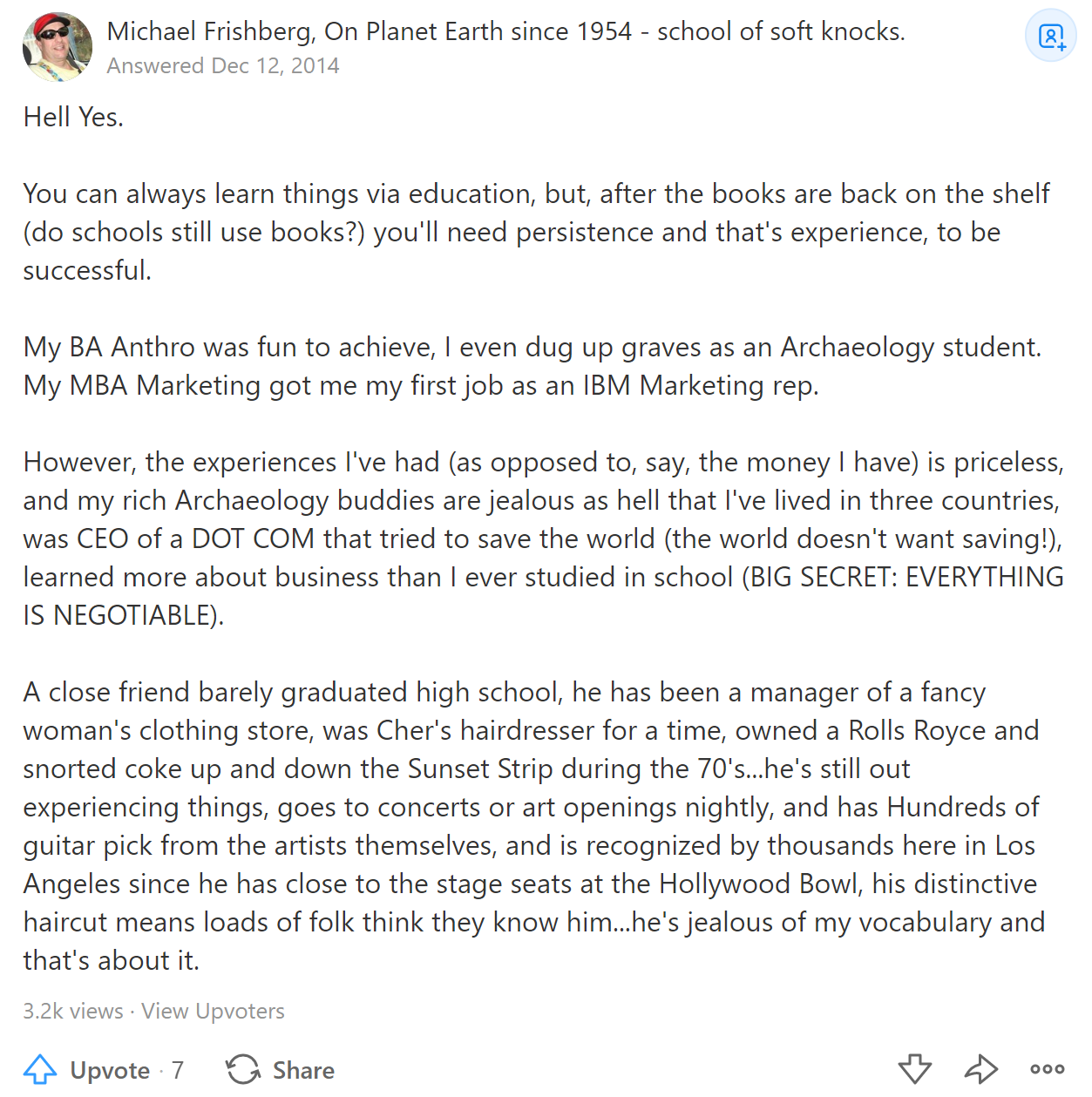

Recruiter’s Experience
To feed your curiosity, including mine, I actually interviewed one of my in-house recruiter to know more about what employers look for. Education or experience?
What’s better than hearing from someone who has interacted with various employers?
What do employers actually look out for in resumes?
Employers will shortlist candidates based on skills, experience or ability to perform and I think the consistency of working in each employment will also be taken into consideration.
The ideal period is at least a minimum of 1-2 years in each employment unless there is a valid reason such as the candidate was working on a short term contract. Otherwise, the candidate may be considered as a job hopper.
For us, we focus on IT roles hence we will look into technical skills experience and IT certification depending on clients’ requirements.
Are they the same things they look at during the interview?
Definitely. During the interview, they will get to probe more into your current and previous employment and will test on how suitable you are for the job opening.
Other than that, the soft skills presented are as equally important. They will look into how you present yourself like your body language, attitude, sincerity & etc.
Based on your experience of handling clients from different companies in different industries, are their requirements similar?
Not really. Different companies have different requirements and it depends on their industries.
For example, some of the companies that are working under the government sector might only accept candidates who have cleared the Security Clearance.
What advice will you give to those looking for a job or for a career change?
It depends on what kind of roles they are looking at. If they are looking for a Project Manager role for their next career advancement, then it will be good to take up a PMP / PMI / ITIL certification. Because in the IT industry, certain roles need certain certification in order to be hired.
In a nutshell…
EXPERIENCE ≥ EDUCATION
Following work experience is personality. According to Monster, a recent Universum study found that 48% of employers choose candidates because of their personality.
Which I actually agree. I believe the deciding factor of you being hired will be your personality, character and whether you can fit into the work culture.
Thus, it is vital to portray yourself well during interviews and even on social media. As the first impression is the last impression and what goes online, stays online.
Nowadays, most employers use social media to gather more information about candidates.
Social media is like a biography of the person. What he/ she does, what kind of person he/ she is, they are all shown on social media.
One advice on starting or choosing your next career path will be, don’t think too much.
“The truth is you don’t know what is going
to happen tomorrow. Life is a crazy ride,
and nothing is guaranteed.”
Sometimes you can’t plan out your whole life journey. Life is about embracing change, without the ups and downs, life wouldn’t be the same.
When the opportunity comes, grab it. If you keep doing the same thing, in fear of trying and stepping out of your comfort zone, you will not grow.
Only through experience of trial and suffering will you have a clearer vision of your goal and a step closer to success.
Adding on, it is best to find a company that values you and sees your true ability, don’t be a round peg fitting into a square hole. Only then can you truly gain the full experience.
Want to gain some valuable work experience and give yourself an edge in the job market?
Why not do some freelancing or apply for a part-time/ contract job?
Alternatively, you could also apply for internships. A chance to explore a career path and network with professionals in the field.
Jobs to consider:
- Network Engineer ( 1 year contract)
- Business Development Intern
- Digital Media Intern
- Junior RPA Developer(2 years Contract)
- Full-stack Developer Intern
- Creative & Marketing Intern
- [GOVT] Assistant Programmer ($1,600 – $2,500/ GCE A & up) – RL
You could also download our job portal, Jobs007 to explore more job vacancies available.
Other than that, if you are looking to upskill yourself to be more relevant and valuable in the industry, here are some suggestions of organisations offering upskilling courses:


